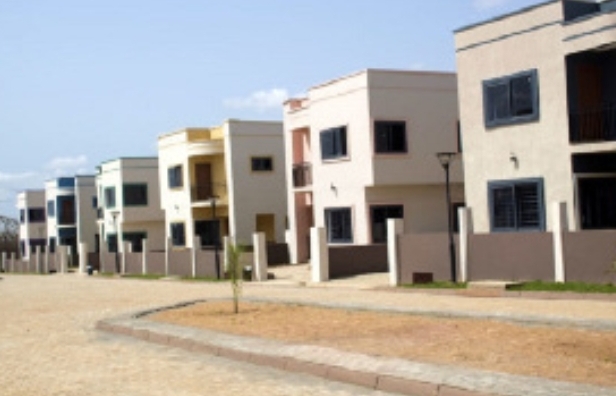EXPLAINER: Is it better to buy a house or rent?

Whichever option you choose depends entirely on your lifestyle and financial situation. Both require a regular income so that you can afford the payments and associated costs and may also require a certain degree of effort to maintain.
Determining whether to buy or rent your home involves a complex decision-making process. For example, if you love to travel around the world or your job requires you to travel and spend several weeks at different places, it is only right that you rent to save cost of maintaining your home when you are out of the country working or sightseeing.
Also, consider factors such as how long you plan on staying in that area and whether you are ready for the responsibility of owning a home. In today’s article, we will delve into renting and owning a home with in depth discussion on the pros and cons of each of them which will help you make an informed decision on whether to rent or buy a house.
Renting
Renting is basically paying the home owner an amount of money to live in their homes which is calculated on a monthly basis for a period of 6 months or more. Per the current laws governing the rent, ACT 1963, tenants are to only pay between one to six months’ advance rent.
However, most people do not follow these laws. The important thing is that you have an agreement with the owner of the house in a way that works for both of you.
One of the major factors to consider when renting is how long you plan on living in that area. If it is for a short while, it is only appropriate that you rent. For instance if you have been transferred to a new place due to work or other purposes, it is best to rent to study the area for a while before you decide to make a permanent purchase of a house.
Renting can be a very predictable expense when you have a stable and reasonable agreement. When you rent, you know exactly your housing costs each month. This amount is indicated on your lease so you can plan accordingly.
In some cases, your landlord may also include other costs within that amount, such as utilities, storage etc. which is usually not budgeted for by home owners. You know what your costs are upfront and can plan accordingly unlike owning a home where there are a lot of unexpected costs.
The biggest myth about renting is that you’re throwing away money every month. However, if you enjoy a lavish lifestyle, you may find renting to be more expensive than owning a home. This is not true. After all, you need a place to live, and that always costs money in one way or another. While it’s true that you aren’t building equity with monthly rent payments, not all of the costs of homeownership always go toward building equity either.
Renting means you’re able to move whenever your lease ends. However, it also means you could have to move suddenly if your landlord decides to sell the property or they could just bump up the rent to more than you can afford in order to put you in a position where you can no longer afford the rent.
As a renter, you may face rent increases each time your rent is up for renewal. These rent increases can be even steeper if you live in certain parts of town, i.e city centres and other elite communities. The quality of the property you are renting can also attract higher rent increments when renewal is due.
This may not be the case in the peripheries. Resorting to the rent control office can help limit how much a landlord can increase the rent. The hustle of looking for a place to rent is also not an easy task and can take up to months to find the perfect apartment to suit your needs.
In the developed countries there are strict rules for maintenance of the property between both the landlord and the tenant. In Ghana, it depends on the kind of landlord. Thus, a good number of land lords do not take maintenance of their property as seriously as they should, hence if you are not fortunate you the tenant will spend more on maintenance than you ought to,
OWNING A HOME
Buying a home is generally considered as the better option as you can build equity. Many experts suggest that if you’re going to be in one place for five years or longer, it’s financially wiser to buy a house.
You also have more freedom to do what you want, without criticism from a neighbor or your landlord; like being able to remodel the house without having to answer to anyone. You can make changes to always suit your lifestyle as and when.
It is an investment which will last for a long time till you decide to move or sell the house. You can also decide to make money out of it when you give some part of it out for rent. Rents are sometimes headaches especially when there is an increase but the good news is that in owning a home, you do not have to worry about rising rents.
The downside of owning a home is that, you don’t know if your property will shoot up in value over time, or possibly decrease if the neighborhood you’ve moved into is having economic troubles.
So while homeownership is generally considered the better investment, over the long run, a renter investing what they would be putting into house repairs and property taxes might not do so bad, one could argue.
The maintenance cost of a house can be a lot. Someday your roof will wear out, and insurance policies don’t pay for general wear and tear. You’ll also spend money to mow the lawn, either by hiring a service or buying a mower. At various times, you may need to hire a plumber, a heating or cooling service depending of which part of the country you are and maybe an exterminator to help maintain the house. Property tax cannot be left out when talking about owning a home. It is quite expensive and is paid on a yearly basis.
Conclusion
Ultimately, deciding between renting and buying a home is a personal choice. If you haven’t determined which is best, it may be helpful to speak with a Real Estate Broker/Agent that can help you weigh your options and make an informed decision.
There is no definitive answer as to whether renting or owning a home is better. The answer depends on your own personal situation—your finances, lifestyle, and personal goals. You need to weigh out the benefits and the costs of each based on your income, savings, and how you live.




